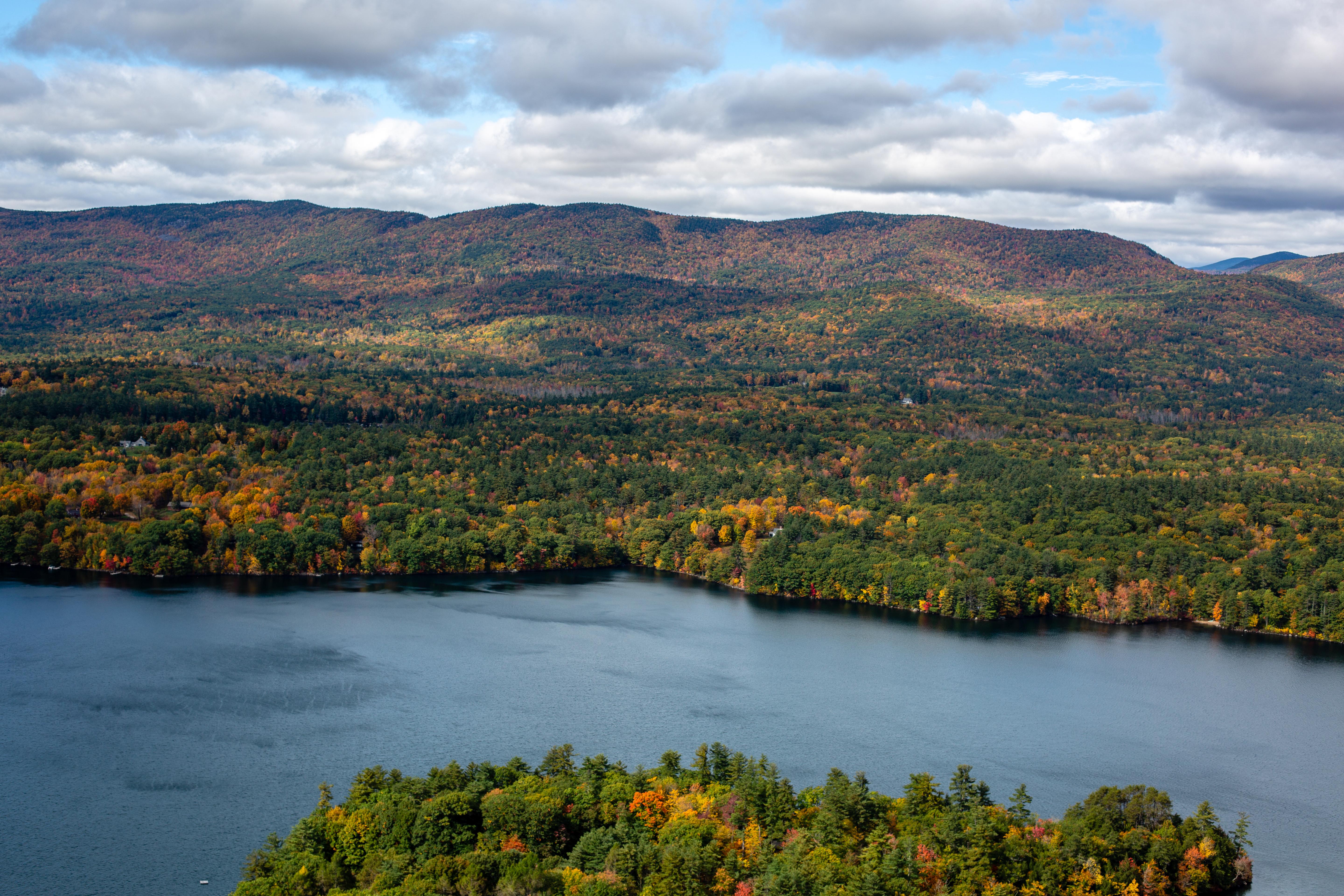- Tags:
- Recreation,
- Climate

Taking in a view of natural landscapes has been shown to lower pulse rates and combat mental fatigue. Views in New Hampshire — including the one pictured from the Forest Society’s Eagle Cliff in Sandwich—are plentiful and free and can be enjoyed by all ages! (Photo: Emily Lord)
Nature is a Remedy for Stress
Nature is a missing ingredient in our society’s approach to health care. The benefits to being outdoors include positive impacts on psychological, physical, and cognitive well-being.
Walking in nature has the obvious benefit of getting you moving and physical movement is always a good thing. A lesser known benefit, however, is that being active in nature gets the body’s parasympathetic nervous system going.
The para-what?! What does that mean?
The sympathetic nervous system starts up the fight-or-flight response in our bodies when we sense danger. When the sympathetic nervous system is activated, the body is prepared to take action to deal with whatever the threat is. Imagine a bear jumps out of the woods and it is coming straight for you!
Your heart immediately starts beating harder and faster, your breathing might become more like panting, your pupils dilate, and your mouth might feel dry because your body is not focused on salivation or digestion—it’s focused on survival! This bodily response is perfect if you need to figure out whether to run away as fast as you can or to confront that bear.
But a problem arises when the sympathetic nervous system kicks in at the wrong time: when there is no life-threatening situation. It’s as if our brains perceive a real-life actual bear jumping out of our phone when we check our email or when someone calls or when we click on the calendar app and see all the plans for the day. Our brains get tricked into perceiving daily stressors as an angry mama bear and can send us into fight-or-flight mode without us even realizing it is happening.
The parasympathetic nervous system, on the other hand, refers to the network of nerves that relaxes our bodies when it thinks we’re no longer under stress or in danger. When the parasympathetic response kicks in, our heart beat slows down, our breathing slows down, the pupils constrict, and our digestive system kicks back in through increased saliva and juices in our intestines that process food. Our brain realizes we’re not in any danger and allows the body to relax.
When our sympathetic nervous system is too active, we can feel stressed out, and chronic stress can lead to all kinds of health problems. This is why it’s so important to know that a simple activity like walking outdoors can kickstart the parasympathetic nervous system and calm the body and mind.
How much time moving outdoors does one need to gain these positive health benefits? Answer: Only 120 minutes a week, which means just 20 minutes a day!
Research has shown that moving our bodies in nature can result in:
- improved psychological well-being (less anxiety, fewer negative feelings, and less repetitive thinking);
- improved psychophysiological stress reaction (less fluctuation in heart rate; lower stress-related hormones like cortisol, adrenaline, and norepinephrine; and more feel-good hormones like serotonin and dopamine);
- improved cognitive function (more creativity, better focus, fewer memory issues).
Aimee Valeras, Ph.D. LICSW, is a social worker at Concord Hospital Family Health Center. Ryan Smith is the editor of Forest Notes magazine.
